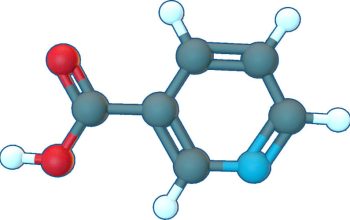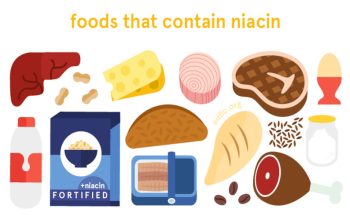DBM is an off-shoot, modernization of Orthomolecular Medicine, a term coined by Linus Pauling that means “The Right Molecule”. DBM advances on Orthomolecular Medicine by creating 3 “laws”, or proofs that create guideposts for the practitioner or any individual to find bio-molecular solutions for adverse human conditions. These laws are:
Find the Deficiency First
The Cure Denotes The Cause
and No Healing Can Happen In The Presence Of Deficiency.
These three laws act as “bread crumbs” that lead the individual who is interested in seeking a simple solution to seemingly complex health problems that are, in fact, just varying degrees of simple biochemical deficiency. These three laws “demystify” and “decode” the complexities of health care methodology and create viable, reproducible solutions that establish deficiency as a major cause or result of adverse human health conditions and experiences.
We see examples of this concept of “deficiency as cause of disease” in how easily niacin “cures” pellagra; how vitamin C in even sub-physiological amounts can easily cure scurvy and its related forms; how thiamine cures the dread disease beriberi. We can also observe how low levels of vitamin E are a causative factor in heart disease and how vitamin E was used with great success in “treating” and “curing” thousands upon thousands of patients with heart disease and related conditions as far back as the 1940s.
Deficiency-Based Medicine takes all of this and codifies it into a methodology that anyone can apply. It is like “reverse engineering” in a way, because we work backwards and continue down the proverbial rabbit hole until we find rock-bottom: the biomolecular deficiency that is the so-called “root cause” of the current condition. This method is devoid of diagnosis, treatment, and “cure”, so it does not interfere with any medical process or treatment plan, and we can even say it “enhances” the medical aspect. By correcting deficiency, we hurdle some pretty obtrusive roadblocks that prevent healing and positive outcomes. We must also understand this in “context” of the patient or individual, so there is a focus on “bio-individuality”, the idea that everyone is different and unique. This is also why diagnosis, which seeks to fit every patient with similar types of symptoms into a collectivized category that has a standard accepted “treatment”, has no real use in DBM. The ironic part about this is that deficiency is, in fact, “the cause”, but the degree of such varies from person to person, so while the “molecule” may be correct, the application of said molecule or molecules varies tremendously from person to person. This is a paradox of Orthomolecular Medicine: While the molecule that corrects the deficiency may be identical from person to person with such a deficiency, the amount, timing, and application of that molecule have a dramatic variance from person to person.
Deficiency-Based Medicine is the key methodology to explore this bio-individuality. It takes into consideration the fact that each person has different needs, that “heredity is not destiny” and that genes do not truly determine our fate; that we are all unique and that uniqueness is why we need a unique approach. Deficiency-Based Medicine is that unique approach.
There is a laser-like focus on nutrient and bio-molecule conversion that is wildly overlooked in many other health care methodologies. DBM focuses on fixing conversion issues by “finding the deficiency first“, or, seeking out the true deficiency that is on a layer below the surface of the observed deficiency. For example, if there is Vitamin D deficiency, is it really a lack of the so-called “vitamin” or the lack of the more insidious, more common conversion co-factors? Is the deficiency the result of malfunctions in enzyme pathways due to missing or lacking conversion factors? That’s one of countless other examples that DMB focuses on where other approaches tend to either ignore or misunderstand.
In the 1930s and 40s, “nutritional medicine” was extremely popular and was a heavy focus in med schools all over the nation. William Kaufman MD explains this focus in his memoirs that were recently published (2023) but written before his death in 2001. He shares that all the various departments of medicine during his time in med school in the 1930s had a heavy focus on deficiency-as-disease and it looked like the future of medicine was to be the correction of these deficiencies as treatments and cures for disease. Almost 100 years later, this has never happened, and, in fact, the very idea of something like Vitamin C being the cure of anything is so anathema to modern health care that there may be criminal charges levied upon individuals who use the very same methods used by MDs in the 1930s and 40s for adverse health conditions.
Deficiency-Based Medicine is the future of medicine because it gives us the methodology to correct deficiency that is outside the medical industry’s limited scope and vision. It is non-medical, but 100% purely biological. It does not have a master or a “board”; it is based entirely on logic, reason, deduction, scientific method, and common sense. It does not require “license” as no medical board is necessary to, say, “treat dehydration by giving someone a glass of water”. It is so simple and so effective that many refuse to believe it, like how niacin was “too good to be true” and many disbelieved that it could be so effective in correcting so many issues (that were, incidentally, the result of a deficiency of niacin!). DBM creates a sort of cognitive dissonance in a person or professional brought up or trained in the medically narratives of the modern era, such as “germ theory” or “terrain theory” or “one bug, one drug” or “symptom, pathology, pharmacology” or any of the “theories” about medicine that seem to bypass or ignore the role that biochemical deficiency plays in literally every adverse human health condition. It is really that simple, but by no means “easy” because the clinician must think critically but also act clinically. It is a perpetual exploration of the individual and each new case is a “clean slate”, where we know that deficiency plays a critical, crucial role, but to what extent and to what degree is unknown. This is not a “turn key” “cookie cutter” approach. One must use the powers of reason, logic, deduction, and common sense to apply the Three Laws to each case. The DBM specialist is a bio-chemical Sherlock Holmes-meets-Vasco DeGama-meets-Isaac Newton: Deductive Reasoning + Exploration + The Scientific Mind.
Deficiency Based Medicine IS the future of medicine, because at most it makes what we call “medicine” in the 21st century mostly obsolete, and at the very least adds the missing piece to our medical model, for instance, allowing for IV Vitamin C to be administered to stroke patients immediately upon entering the emergency room or niacin being given immediately to heart attack patients upon admittance. Such ideas could easily be incorporated into the medical model without any conflict or incident, and would surely guarantee better patient outcomes.
Finding the deficiency IS the key, and Deficiency-Based Medicine is the missing keyhole.
DBM IS THE FUTURE and THE FUTURE IS NOW.
Please read this important Disclaimer and our Privacy Policy notices here.




